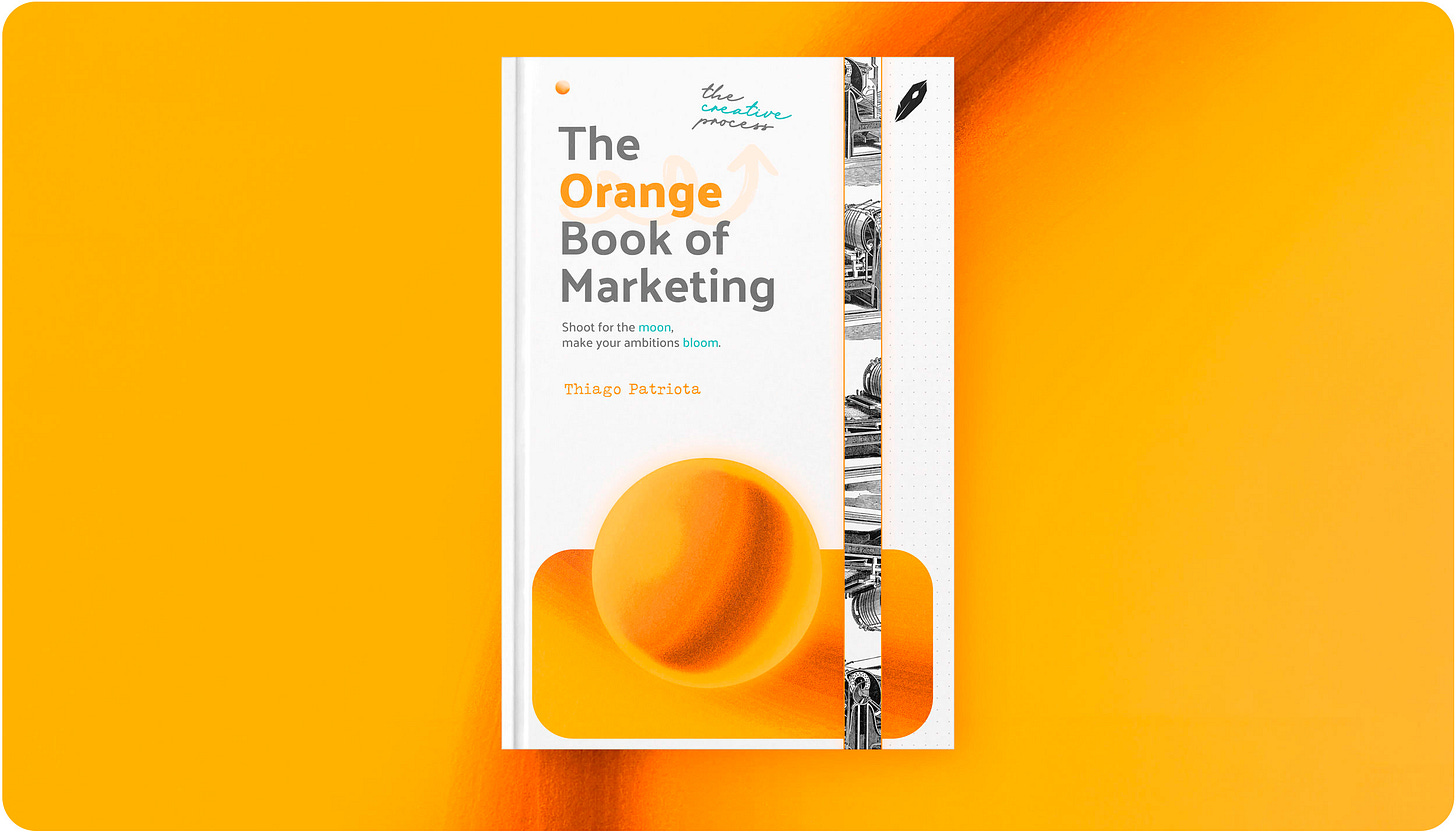TOBM.3 - A Rare Plant Called Dream
Understanding your own meaning of sacredness is crucial to understanding yourself.
Welcome to the third edition of TOBM!
In this editorial, we will be sharing previews and full chapters of The Orange Book of Marketing with some commentaries and highlights.
Learn more about the book by clicking this link.
III - A Rare Plant Called Dream
There is a particular word in the global idiom of human languages that is going through a major extinction period completely unnoticed. For “Sacrare” is a Latin verb that means “to immortalise” and evolved to the contemporary English version of: “Sacred”.
To recognise something or someone as sacred is something every single person does many times throughout their entire lives, but such action is sometimes done either unconsciously, with other words or even with a misuse of the original term. Sacredness, nevertheless, refers to the quality or state of deserving respect, praise, protection or remembrance. In the same way, “Holy” is a word used to resemble purity and elevated importance but is mostly used in relation to divinity and spirituality.
Understanding the importance of sacredness is crucial to understanding yourself and every aspect of life that you deem sacred. Fairly because such feeling is a unique optic to every single person and their respective backgrounds: cultural, economic, educational or professional. Sacred is that type of thing that carries so much importance and value for us that we safeguard it as an intangible type of gold. It feeds us with purpose, it makes us wake up in the morning and drive to work, and it is beautiful, rare and meaningful for not having a true kind of replacement, like pure shiny, valuable and metallic gold.
For gold is actually unable to cease its own brightness, but that single fact in no way means that being found is something it aims for. This statement becomes an argument considering that ore deposits and nuggets hide in the depths of a mine, in the granularity of nature, or in the currents of a stream. Gold carries its value precisely because it is scarce and rare to be found.
The thing about what is deemed important to us is that we get used to it; we get attached to its sacredness like the handles of a vase. Such a phenomenon is so personal to everyone that it is not something that can be understood. It is something that is felt as much as it is unseen; it is something that only becomes seen when it is not felt. It is something that gives us wings but also sets boundaries. It is something that takes all the weight from our shoulders or is the massive weight we are unnoticedly carrying; precisely because of that, to have something sacred is as important as not deeming the wrong things as sacred, which in turn, is still better than having absolutely nothing considered sacred.
For sacredness is something that carries a magical feeling that we can’t choose when or how to feel, but that we can understand why it is important to us in relation to our essence and personality, its presence is not always valued in the same way that its absence can only be translated by one word that only exists in Portuguese and Galician idioms. Such word, known as “Saudade”, describes a complex set of emotions related to nostalgia, loss, longing, and happiness, and it is often used in Brazilian literature and music to describe a sense of loneliness and incompleteness; it is untranslatable and has no direct equivalent in English. Considering such a context, to find your own sacredness in something can only mean to have lost other sacrednesses to the point where you start understanding when something carries a true value that can’t be found elsewhere, exactly because sacredness is the type of thing that finds you rather than actually being encountered. Forasmuch, to lose something sacred doesn’t ever mean that sacredness is not anywhere to be found, fairly because if sacredness is something of profound personal value to you, this can only mean that the ideas you have, the dreams you imagine, and the things you create cannot necessarily replace what is lost, but fill your heart with something more reliable for being it’s source, you. For being crafted by your own intention.
Hope is a good thing, maybe the best of things, and no good thing ever dies.
Quote from the Movie “Shawshank redemption”
Being able to recognise what is sacred to oneself is the first and last step to understanding why there is a reason to dream, why more of that which is sacred should come into fruition and be shared, why it can push oneself forward and give the reasons and motives necessary to run not one, not two, but as many marathons as needed to make the best use of such gift.
Because night dreams are a byproduct of a healthy mind that can play with itself in a way that nurtures our body and brain to sleep and regeneration, while daydreams are a byproduct of a free mind that can consider the most absurd of things for being able to feel the most absurd of joy and beauty from its surroundings. The prettier the garden, the bigger the dream, for we, humans, cultivate the unexplainable capacity of not only making new things but making them better and better.
For many, the concept of god is sacred; for others, faithfully following the rules from the scriptures. For many, a job position is sacred; for others, social media followers. For many, playing with their pets is sacred; for others, giving them treats. For some, a simple letter can be sacred; for others, a “Good morning!” is quite enough sacredness. For some, the newest vehicles and gadgets are sacred; for others, their favourite brands. For some, good music is sacred; for others, only live shows. For some, money is sacred; for others, power and control are even more so. For few, cultivating a plant to maturity is sacred; for others, getting to grow a small garden. For few, studying is sacred; for others, teaching. For few, questioning is sacred; for others, disarming paradigms and conflicts. For even fewer, creating is sacred; for others, simply existing is quite enough sacredness.
Amidst so many different interests and motives, only one thing makes itself constant for people who find sacredness throughout the journey of life, for hope is a very specific thing that can only come from sacredness in the same way that it is a map to finding sacredness. To be optimistic about life is a skill like any other, but its practice is proportionally painful to living in pessimism because seeing everything around us as threatening can be as exhausting as being hurt and caught off guard for simply being a happy fool, the main difference is that one type of hurt teaches and the other hurts in avoidance.






